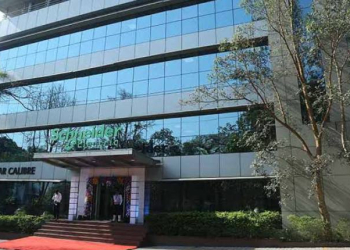New Delhi: Global spillovers may dampen India’s export businesses outlook, however, a resilient domestic demand and rejuvenated investment cycle as well as a strong financial system, will push economic growth, as per the monthly economic outlook review for October released by the Finance Ministry on Thursday.
“A rapid deterioration in global growth prospects, high inflation, and worsening financial conditions have increased fears of an impending global recession. The spillovers of the global slowdown may dampen India’s exports businesses outlook; however, resilient domestic demand, a re-invigorated investment cycle along with strengthened financial system and structural reforms will provide impetus to economic growth going forward,” it noted.
Also easing of international commodity prices and new Kharif arrival are set to dampen inflationary pressures in the coming months.
In addition to this, the monthly review added that hiring by firms is likely to witness an improvement in upcoming quarters driven by a rebound in new business gains as firms continue to benefit from the lifting of the Covid-19 restrictions and the possible sustaining of the sales momentum witnessed during the festival season.
Domestic prices of some food items have risen in the wake of the rise in international prices owing to the prevailing geopolitical situation, the review said, adding that India’s grain availability was impacted by the untimely heatwaves and deficiency of the southwest monsoon in the current year. However, export restrictions have ensured that the country’s needs are fully met.
“India’s food security has remained intact. Sharp rise in tractor sales in September and October also point towards improved sentiments and an expected increase in crop area sown.”
Going forward, the review noted that the current retail inflationary pressures are expected to ease with fresh Kharif arrivals and a pass-through of lower input costs to consumers, also affirmed by the RBI’s inflation projections for the next two quarters.
“Even as the strengthening of food systems and moderating inflation is helping to ensure living standards in lower income segments of the population, other aspects of inclusivity have also been building up, as reflected in various social indicators,” it said.
“India’s response and containment measures, followed by near universalisation of vaccination,have been considered a public health care marvel in subduing the pandemic,” the survey said.
However, even before the successful Covid management, other success stories were slowly unfolding, including those of Infant Mortality Rate and Maternal Mortality Rate, which declined between 2019 and 2020. This could be attributed to strategic investments taken under the National Health Mission (NHM), it noted.
In general, inclusivity is perhaps best demonstrated by job creation. In India, too, the recovery in economic activities across sectors has improved the overall employment situation in the country. The PLFS shows the urban unemployment rate declining for the fourth consecutive quarter ending June 2022. Net payroll additions in EPFO have witnessed double-digit growth in September 2022, the survey said.
(IANS)




















